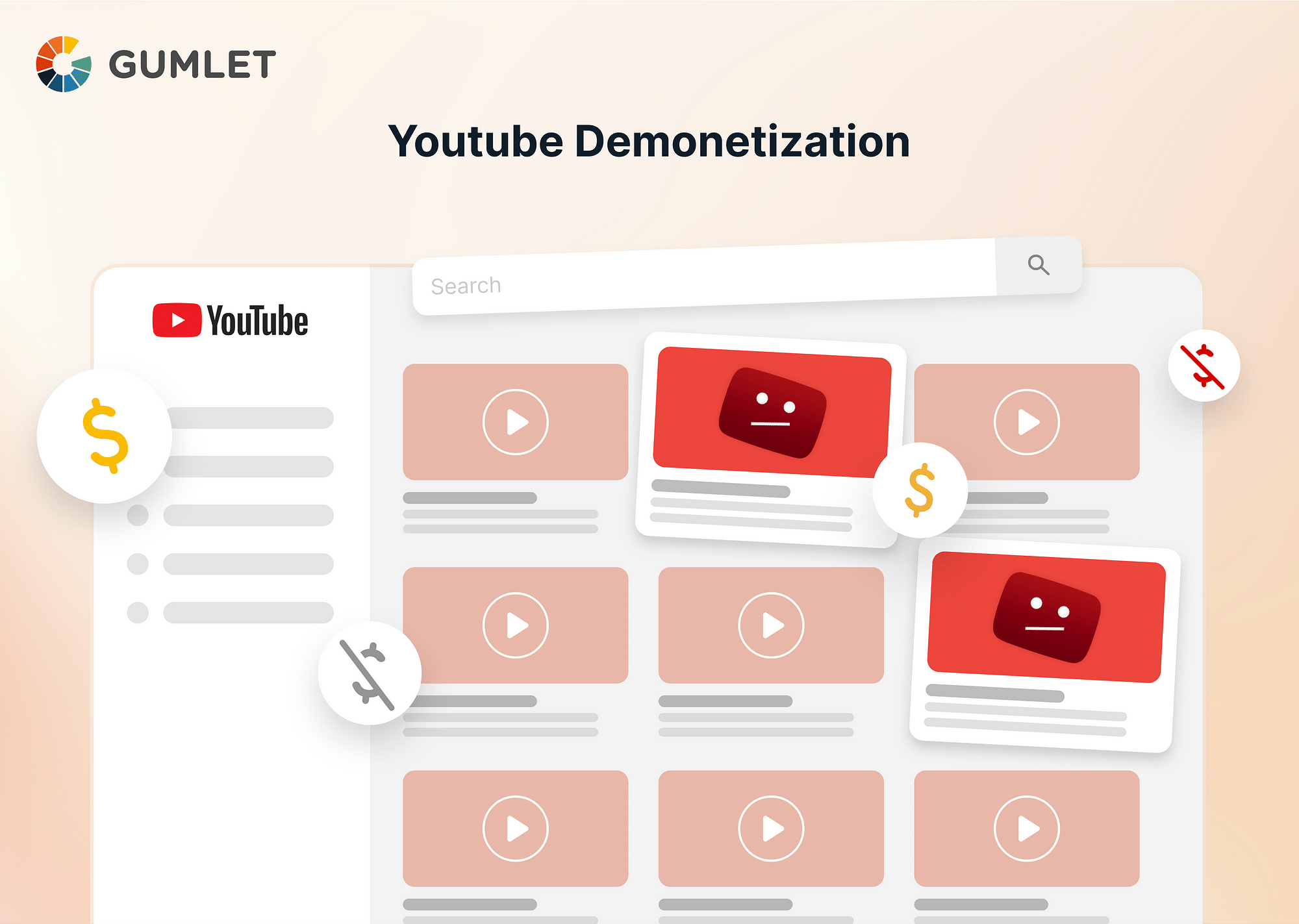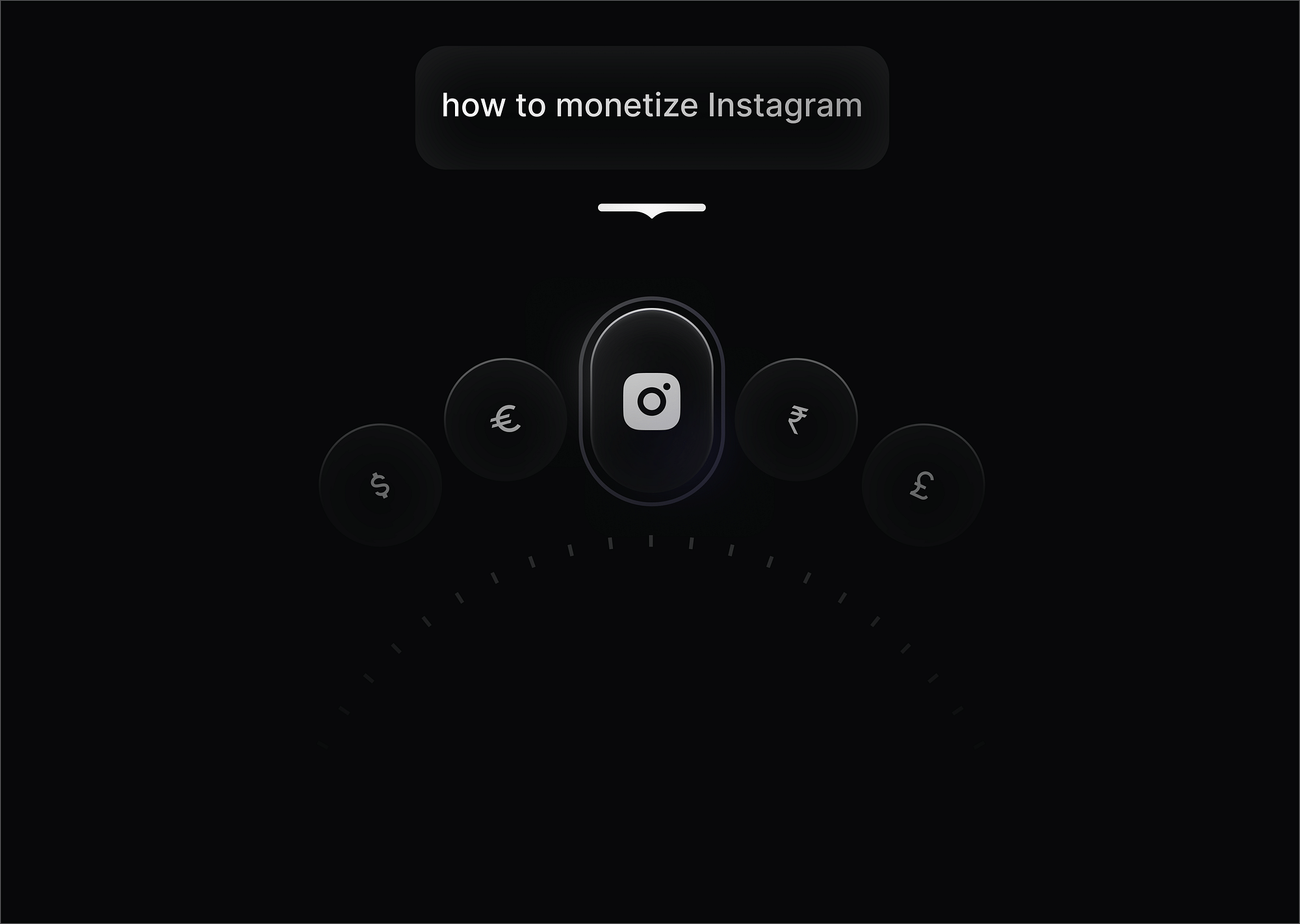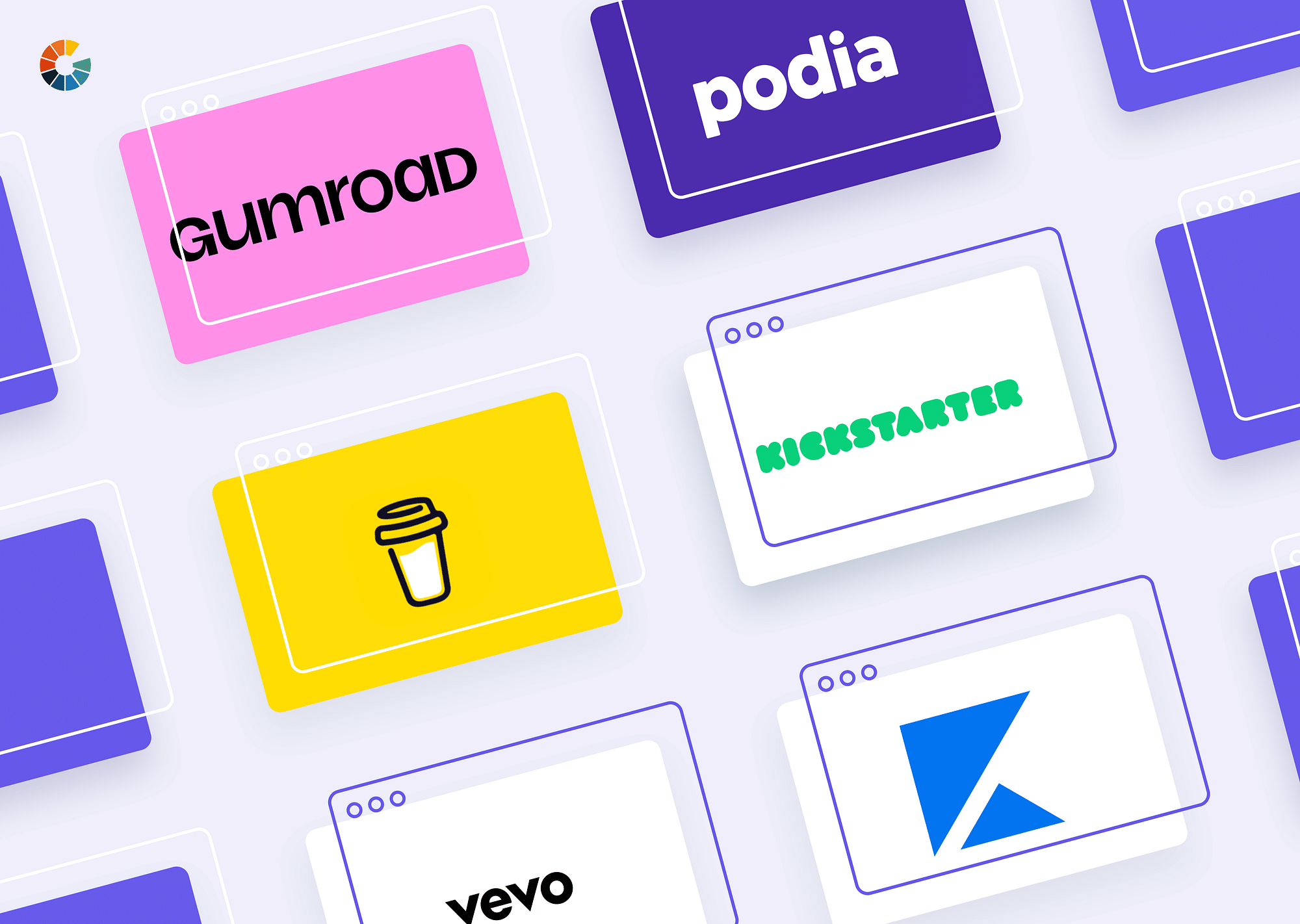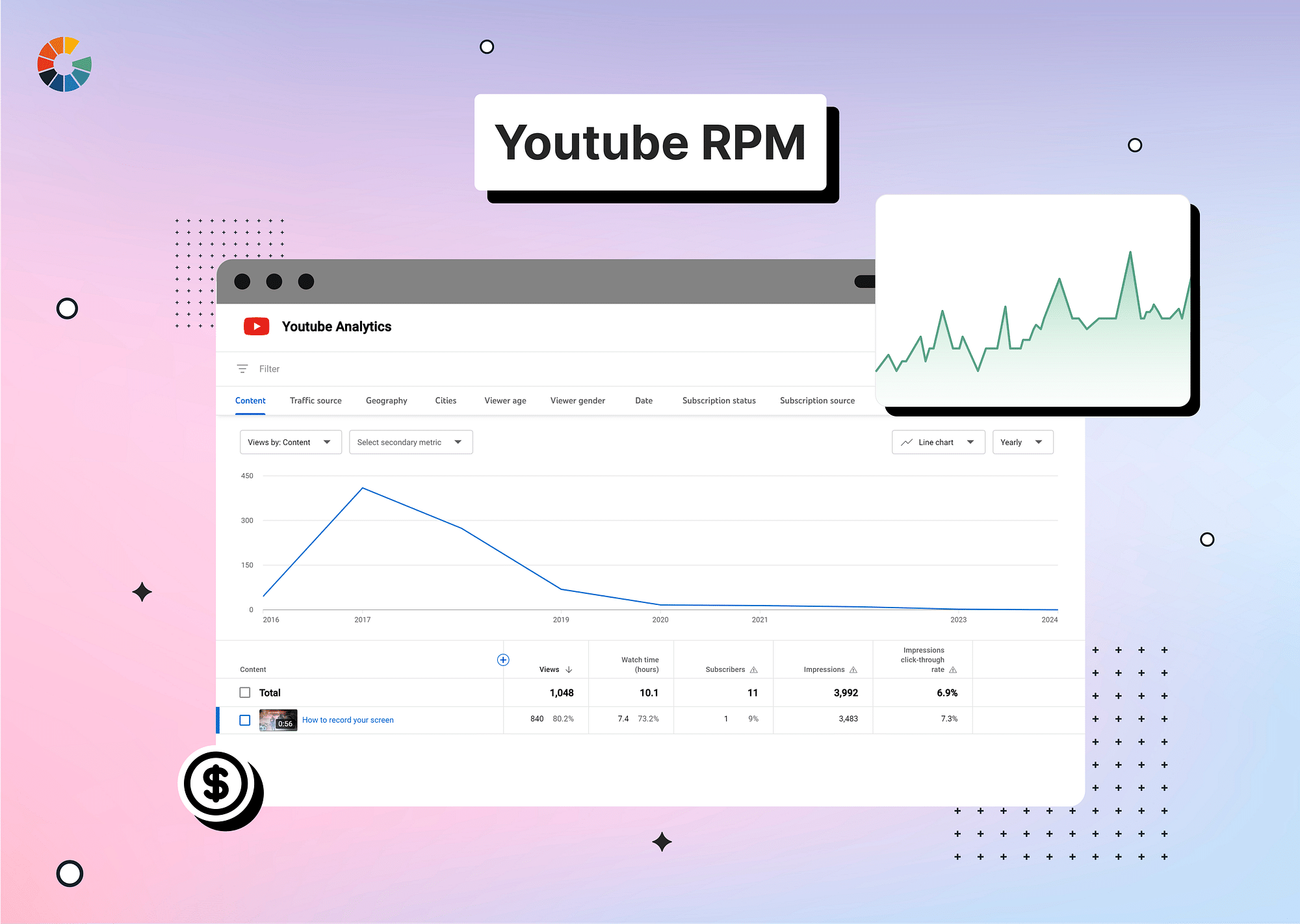What is YouTube Demonetization?
YouTube demonetization occurs when a YouTube channel's videos are considered ineligible for displaying ads, resulting in a loss of potential revenue for the content creator. This typically happens when content violates YouTube's rigorous advertiser-friendly content guidelines.
The impact of YouTube demonetization on content creators is multi-faceted:
- Firstly, the absence of ad revenue can result in significant direct financial loss, particularly for creators relying heavily on this income source to sustain their channels and cover production costs.
- Secondly, creators may face challenges in maintaining their creativity, as they might feel compelled to adapt their content to align with advertiser-friendly criteria. This could ultimately hinder their artistic expression and authenticity.
- Thirdly, the absence of ads can impact a channel's perceived professionalism and credibility, potentially influencing audience perception.
- Lastly, channels that undergo demonetization will likely receive less favorable treatment from YouTube's algorithm, reducing visibility in users' feeds, search results, and recommendations. This could impede channel growth and restrict the expansion of the creator's audience.
Schedule a Demo with Our Video Expert!
Discover how Gumlet can help you build a cutting-edge video streaming infrastructure.
What is YouTube Demonetization Policy?
YouTube's demonetization policy is essentially a rulebook—a set of guidelines—designed to safeguard both content creators and advertisers. The goal is to prevent advertisers from associating their brand with content that could be considered unsuitable, controversial, or potentially harmful.
To be eligible for ad revenue and participate in the YouTube Partner Program (YPP), creators must adhere to the platform's Advertiser-Friendly Content Guidelines. These guidelines are designed to ensure that content is suitable for advertisements and maintains a level of quality and appropriateness. If a channel is found to violate these guidelines, it can face penalties—which includes demonetization.
What Causes Demonetization on YouTube?
Violations of Community Guidelines
When you upload a video, YouTube's automated systems and sometimes human reviewers evaluate whether your content adheres to their advertiser-friendly Community Guidelines and AdSense Google Publisher Policy. These guidelines encompass explicit language, violence, controversial subjects, and more. If your video is found to breach these guidelines, it may be demonetized. This means ads won't be displayed on your video, and you won't earn revenue from it.
Copyright Issues
This pertains to using content that you don't own the rights to. If your video uses copyrighted material (music, clips, or other creative works) without proper permission or falls under fair use guidelines, it might lead to demonetization. For instance, uploading a video with a famous song playing in the background without obtaining the rights to use it can result in demonetization.
Controversial or Sensitive Content
'Controversial' refers to content that is unsettling for viewers and often involves human tragedies. 'Sensitive' content includes significant social, cultural, or political incidents like natural disasters, terrorism, public health emergencies, etc. If your video is found to be exploiting a recent tragic event for shock value and views rather than providing valuable insights, it can be demonetized. However, if you are an authoritative news source or if you are posting documentary videos about historic events for educational reasons, you should be fine.
Misleading Titles and Thumbnails
This refers to using clickbait tactics with video titles and thumbnails that misrepresent your video's content. For instance, sensational thumbnails where you use shocking images that are unrelated to the content. Similarly, highly sexualized content in titles, thumbnails, or themes is not suitable for monetization.
Violence or Harmful or Adult Content
Content focused on violence, injury, or explicit themes can be demonetized since YouTube aims to provide a safe environment for viewers and advertisers. So, this could include graphic violence (showing blood or gore without educational or documentary value) or adult content (using explicit themes in titles, thumbnails, or the video itself, unrelated to a genuine topic).
How to Avoid Demonetization on YouTube?
Here's a straightforward guide to keep your content monetization-friendly:
- Content Creation Best Practices: Adhere to YouTube's demonetization rules by avoiding hateful speech, inappropriate language, explicit content, excessive violence, and misleading titles/thumbnails. Focus on producing unique, valuable content that resonates with your target audience.
- Proper Handling of Copyrighted Material: Respect copyrights by using only content you have rights to or that qualifies as fair use. Always seek permissions or opt for royalty-free/Creative Commons-licensed content to avoid copyright issues.
- Navigating Sensitive Topics: Address sensitive subjects respectfully, providing thoughtful context without sensationalizing. Avoid excessive violence or distressing content, and consider using trigger warnings for sensitive discussions.
- Transparent Disclosure and Responsible Advertising: Be transparent about sponsorships, endorsements, and paid promotions to build trust and comply with YouTube's AdSense policies. Avoid misleading content to prevent demonetization.
How to Appeal YouTube Demonetization?
- Review the Demonetization Notification: Carefully read the notification you received from YouTube explaining the reason for the demonetization.
- Gather Evidence: Collect any relevant evidence that supports your claim that the content does not violate YouTube's guidelines. This may include:
- Contextual information: Explain the intent behind the content and provide any additional context that may be helpful.
- Edits or changes: If you've made changes to the content, provide details and evidence of the modifications.
- Previous monetization history: If your channel has a history of monetization without issues, highlight this.
- Submit the Appeal
- Locate the demonetized video in your Video Manager.
- Select "Request review."
- Follow the on-screen instructions to initiate a human review.
- YouTube will assign an employee to assess your video manually.
Following this, watch your Video Manager for updates on the review's status. The request review process will require a human review of your content, allowing human judgment to override the algorithm's decision. The reviewer will review your content, title, thumbnail, description, and tags. The manual review will restore your video's monetization status if your content is suitable for monetization.
Remember, appealing to demonetization isn't something you should do on a whim. If you repeatedly appeal without success, YouTube might take a closer look at your channel as a whole. So, before you jump into the appeal process, make sure you've done your homework and your video aligns with their guidelines.
Conclusion
Demonetization can impact creators on multiple fronts, from direct financial losses to challenges in maintaining creative authenticity. This is why it's crucial to understand YouTube's demonetization policy and the factors that can trigger it. The key to success lies in proactively curating content that aligns with YouTube's guidelines while exploring diverse monetization avenues.
FAQs:
How do I monetize my YouTube channel after demonetization?
To regain monetization after demonetization, address the issues that led to demonetization in the first place. If your channel was demonetized due to Community Guidelines or copyright strikes, your first step is to appeal these strikes. Consider making the necessary changes to align your content with YouTube's policies. If you cannot resolve the issues immediately, YouTube might still reinstate monetization on your channel after some time. Typically, this waiting period is around 3 months.
Do demonetized videos make money?
No, demonetized videos do not make money since they can not display ads; thus, you won't earn any ad revenue. If your video is demonetized, YouTube can
- Withhold your content earnings
- Deduct amounts from your upcoming earnings
- Restrict ad revenue generated by your videos
- Pause your involvement in the YouTube Partner Program
- Temporarily suspend or permanently terminate your YouTube channel
Does demonetization affect my video's visibility in searches and recommendations?
Yes, channels that undergo demonetization can potentially receive less favorable treatment from YouTube's algorithm, reducing visibility in users' feeds, search results, and content recommendations. This could consequently hamper channel growth and limit the creator's audience.
How long does it take for YouTube to review an appeal?
Once you've submitted your appeal, you can expect YouTube to provide a decision within 14 days. If your appeal is successful, your channel will either be approved or re-approved for the YouTube Partner Program (YPP). You can anticipate monetization being re-enabled within 30 days.




